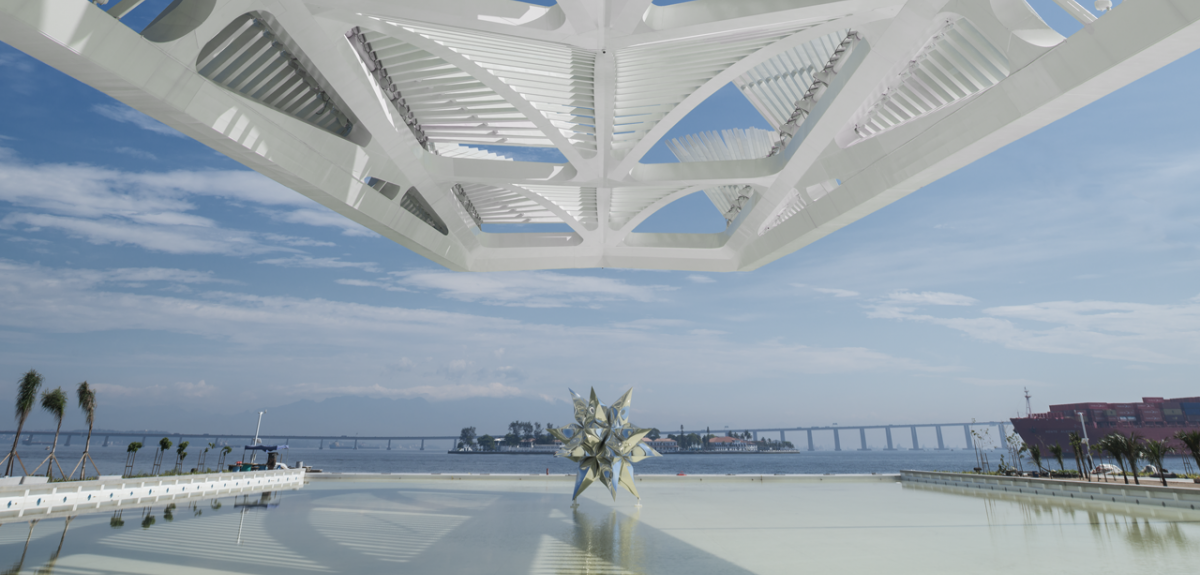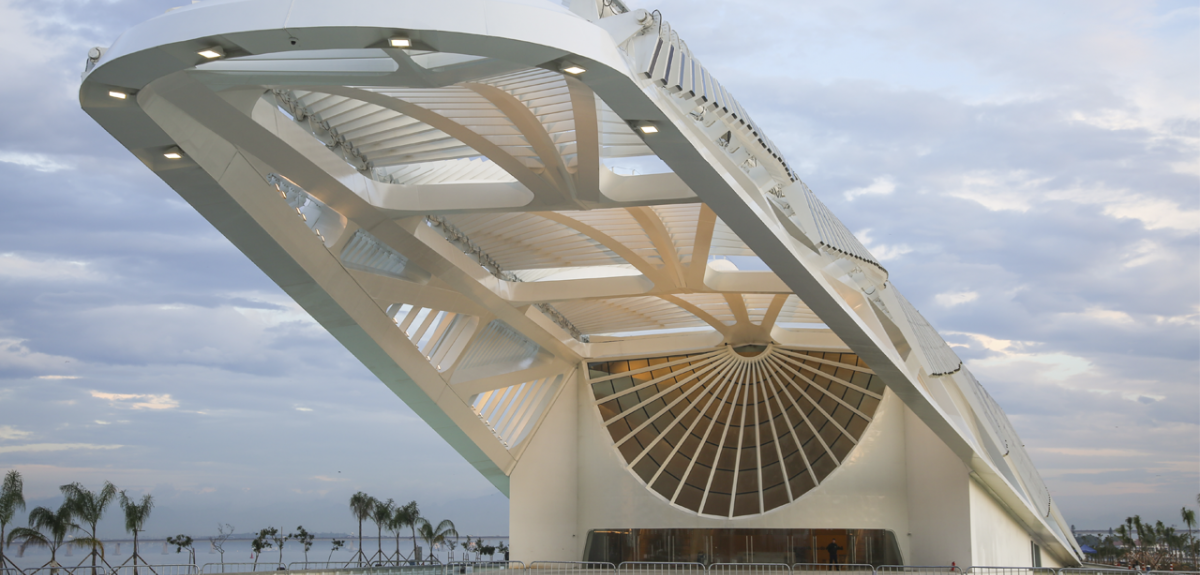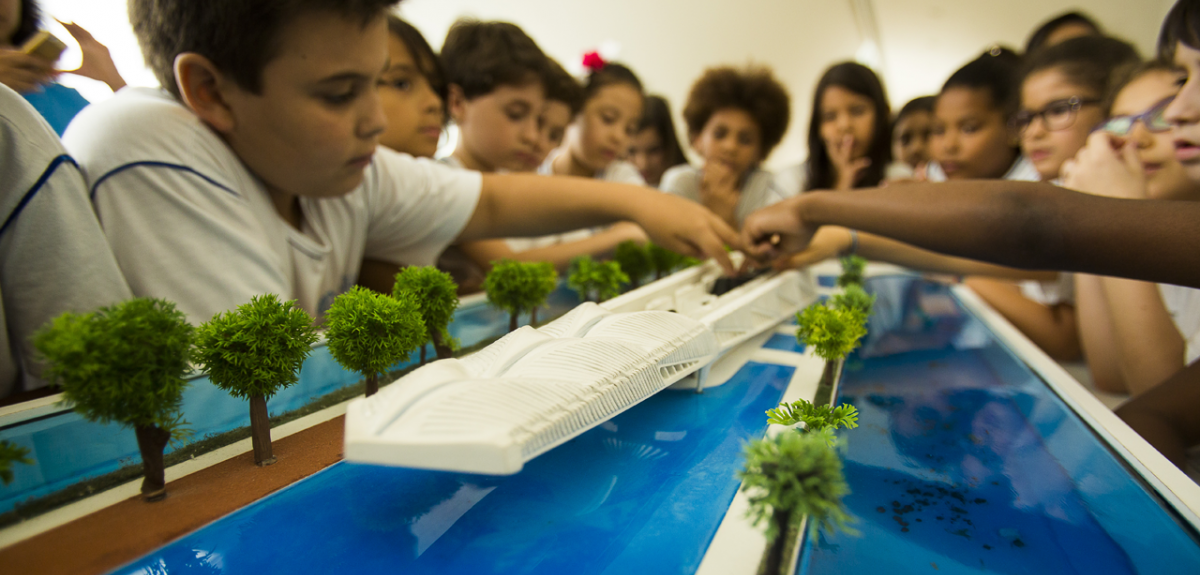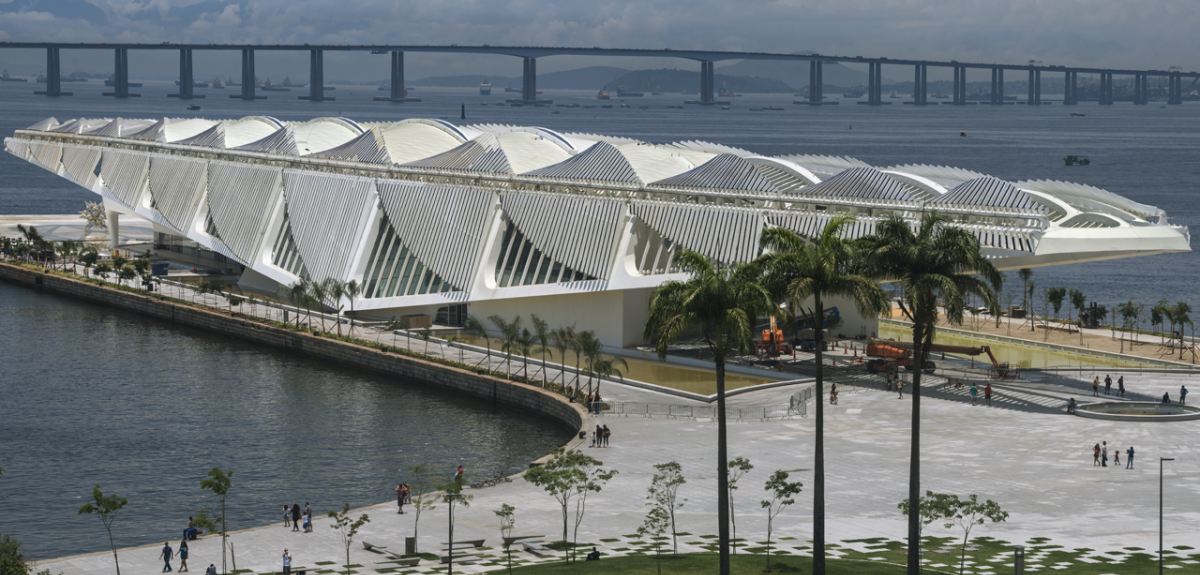MUSEUM OF TOMORROW
The Museum of Tomorrow docked in Rio de Janeiro in December 2015, just a few months before the city hosted one of the greatest events in its history: the 2016 Olympics. Since then, it has invited its visitors, neighbors, partners, sponsors, collaborators, and managers to reflect on the construction of tomorrow, based on the ethical pillars of sustainability and coexistence, in the face of the scenarios and challenges of the present.
Over the years, more than 6 million people have visited the museum's long-term exhibition, encountering fundamental questions: Where do we come from? Who are we? Where are we? Where are we going? How do we want to get there? These questions have also been explored by the IDG - Institute of Development and Management, which, over almost a decade, has been passionately committed to managing the museum's mission with creativity and joy.
Situated as an architectural icon on the shores of Guanabara Bay and rooted in Little Africa, the Museum of Tomorrow quickly became one of Rio's main tourist attractions in its first year of operation. It earned the title of the most visited and highly rated museum in the country, with a rating of 9.56 given by its visitors in a survey conducted in 2018.
The public success was accompanied by critical recognition: the museum received three international awards from the Leading Culture Destinations Awards, considered by the press as the 'Oscar' of museums. Additionally, in 2021, it was awarded the José Reis Scientific Dissemination Award from CNPq and the Carioca Attitude Award. In August 2020, it won an international award from ICOM, the International Council of Museums, standing out with a video revealing the behind-the-scenes work during the pandemic.
Over time, the Museum of Tomorrow has presented 49 temporary exhibitions. Two of them, "The Flying Poet, Santos Dumont" and "Pratodomundo," were awarded at the Grand Prix (formerly IDCA - International Design & Communication Awards). It has also hosted iconic exhibitions such as "Amazonia" by renowned photographer Sebastião Salgado. Divided into five areas (Cosmos, Earth, Anthropocene, Tomorrows, and Us), the long-term exhibition has received over 598 updates over these nine years, both in content and technological enhancements. The museum has also undergone two significant expansions: the interactive Bay of All of Us, featuring information about bays from around the world, including Guanabara Bay where the museum is located, and bays such as Sydney (Australia), Tokyo (Japan), Chesapeake (United States), and Jakarta (Indonesia), presenting examples of coexistence and interaction; and the ÍRIS+, an Artificial Intelligence assistant that "converses" with the visitor at the end of the narrative journey.
As an innovative and technological platform for thinking and designing the desired future, the Museum of Tomorrow is an educational museum, structured so that all its components - content, practices, and collaborators - are engaged with the greater function of educating. In this sense, education and accessibility are in the museum's DNA: it is impossible to consider the present as the place of action without taking into account diversity and inclusion as driving forces of this transformation. Furthermore, both the building and all exhibitions are conceived with sustainability and accessibility principles in mind, and various programs and activities are developed with the aim of promoting inclusion for all.
Programs such as Neighbors of Tomorrow, Trilhar o Amanhã in Brazilian Sign Language (Libras), and Between Museums have already left their mark on the country's museum history, serving as inspiration for national and international institutions visiting the museum to learn about our team's experiences and management methods. As a result, the Museum has established international partnerships with institutions such as UN Agencies, the Science Museum in London, Dade College in Miami, the Climate Museum in New York, the Melbourne Museum, the University of Australia, Fundesplei in Spain, the UN Live Museum in Copenhagen, and the Futurium in Berlin, as well as collaborations with the Google Cultural Institute, the Science Museum, DutchCulture, the Shenzhen Museum, among others, expanding the spectrum of relations and exchanges of the Museum, in addition to numerous partnerships with the territory.
The Museum of Tomorrow is managed by the IDG- Institute of Development and Management , and has sponsors and partnerships that ensure the maintenance and execution of projects and programs throughout the year. The project is an initiative of the Rio de Janeiro City Hall, conceived in conjunction with the Roberto Marinho Foundation, an institution linked to the Globo Group.
Check out more on the Museum of Tomorrow website.




